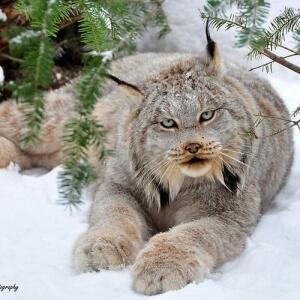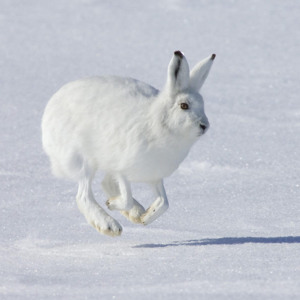Which is shorter, a Lynx or a Hare?
Answer : A Lynx is shorter than a Hare
The average height of a Lynx is 50 cm, (1 ft, 7.7 in ) while the average height of a Hare is 60 cm, (1 ft, 11.6 in )
| Name | Name:Lynx | Name:Hare |
| Height | Height:50 cm, (1 ft, 7.7 in ) | Height:60 cm, (1 ft, 11.6 in ) |
| * Canada Lynx - ranges from 45 to 56cm | * Arctic Hare - ranges from 50 to 70cm | |
| Weight | Weight:6 kg, (13 lbs) | Weight:4 kg, (9 lbs) |
| Top Speed | Top Speed:80 kph, (50 mph) | Top Speed:64 kph, (40 mph) |
| Lifespan in Wild (years) | Lifespan in Wild (years):14 | Lifespan in Wild (years):4 |
| Description | Description:The Canada Lynx can be found in Canada, Montana, Idaho, and Washington. Their color varies but is usually yellow-brown with gray. Their neck hair gets thick in winter. They also have large paws to help in moving on snow. They hunt for food during the night using well-developed hearing and hunting techniques. | Description:The Arctic Hare is a small rabbit like animal which is able to live in harsh environments. They are found in northern regions of the Arctic Circle, mainly in parts of Northern America, Europe and the North Pole. Their movement resembles that of a kangaroo, hopping off its back. Their thick coat changes color from white during winter to brownish-gray to gray-blue throughout summer. |
 |  |
Here are more interesting Questions